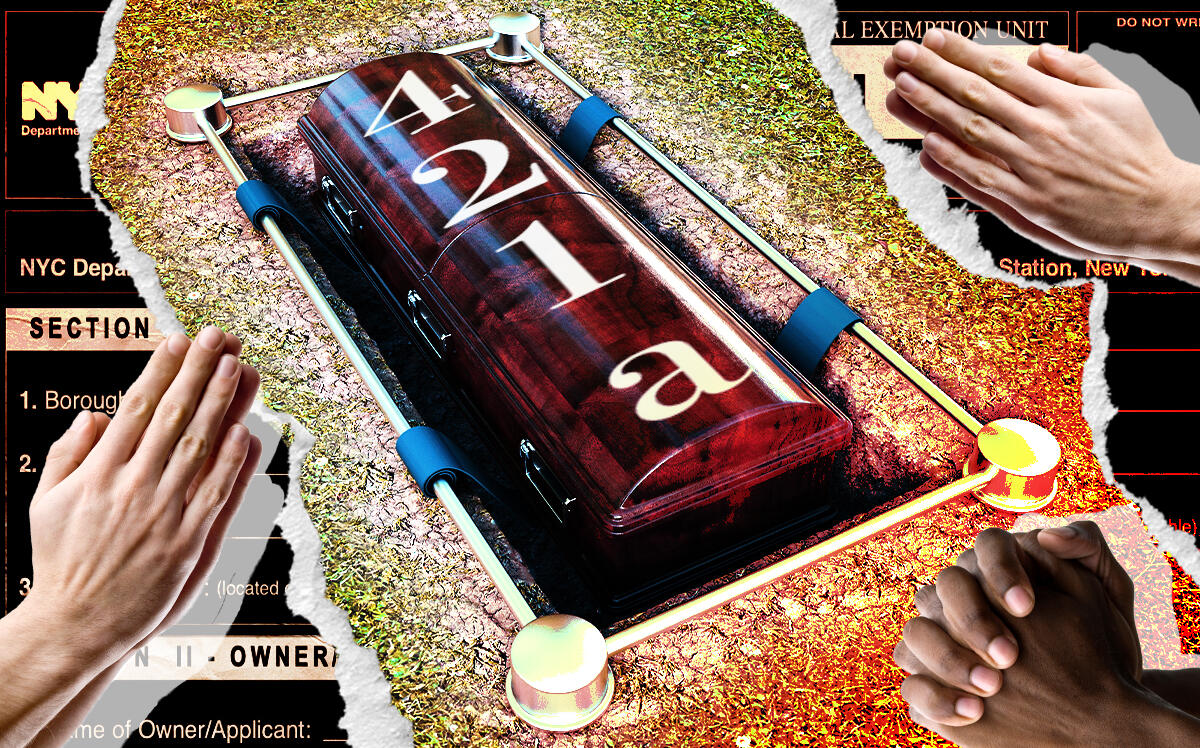Trending
Dead and buried: 421a is gone. Will it ever return?
Property tax break deemed essential to multifamily development expires

The mad rush to qualify projects is over, and with the property tax break 421a expiring today, New York developers must confront the possibility that it will never come back.
Gov. Kathy Hochul had floated a replacement program, dubbed 485w, but it sank like a lead balloon in Albany. State lawmakers showed little appetite to revive or replace the tax incentive for New York City multifamily construction, and the issue is not expected to be addressed until the next legislative session — if then.
In a joint statement, the Real Estate Board of New York, 32BJ SEIU and the New York Building and Construction Trades Council, said in a statement that it is “hopeful that lawmakers will work productively with our growing coalition to address the city’s housing crisis.”
Last week, Mayor Eric Adams reiterated that he believes state lawmakers will figure out how to adjust affordability thresholds to secure approval of a reformed tax break.
In the immediate term, industry experts expect the number of applications for new apartment buildings to plunge, as it did the last time the tax break lapsed. Developers who scrambled to complete their projects’ foundation footings, a requirement to qualify for the incentive, will either move forward with construction or flip the site to another builder. Those who missed the deadline will likely wait for a new tax break or broader tax reform.

Erica Buckley (Nixon Peabody LLP)
Erica Buckley, a partner with Nixon Peabody, expects 421a and another controversial housing issue, good cause eviction, to resurface when state legislators return in January. In the meantime, developers may opt for fully-subsidized affordable housing or market-rate condo projects, but the loss of the tax incentive will mean far fewer middle-income units, she said.
“I think there is going to be a pause,” she said. “You are definitely going to have a wait-and-see moment.”
Some housing advocates have argued that the city would be better off increasing direct subsidies for deeply affordable housing, but that could leave a dearth of new housing for working-class and middle-income earners. A recent report by New York University’s Furman Center for Real Estate found that a majority of multifamily units built between 2010 and 2020 were beneficiaries of 421a.

Ofer Cohen (TerraCRG)
Ofer Cohen’s firm TerraCRG estimates that 80 building applications were filed in the past 12 to 18 months in Brooklyn alone in hopes of qualifying for the tax break before it expired.
The last time developers did that, in 2015, some were not ready to build and just mothballed their new foundations until they were. But they cannot do that this time, Cohen noted. When the legislature revived the tax exemption in 2017, it required that excavation and construction of initial footings begin “in good faith” and construction must be completed on or before June 15, 2026.
“The completion date really puts a lot of pressure on owners and developers to deliver,” Cohen said. “You can’t just mess around.”
City Comptroller Brad Lander and some housing groups called on city and state officials to instead focus on reforming the city property tax reform, which is the subject of a lawsuit that alleges the system undervalues homes in affluent neighborhoods and disportionately burdens communities of color.
William Saya, an audit partner and co-leader of Berdon’s real estate group, called 421a a “stop-gap” measure to make up for the fact that multifamily properties are taxed at higher rates than other properties in the city. But he pointed out that overhauling the property tax system will take considerable political will.
“Everyone recognizes there’s a problem,” he said. “And yet nothing really is getting done.”





